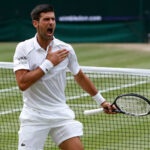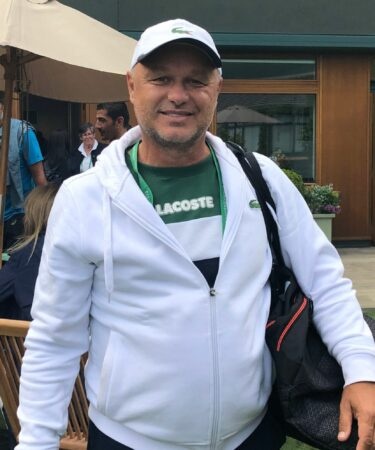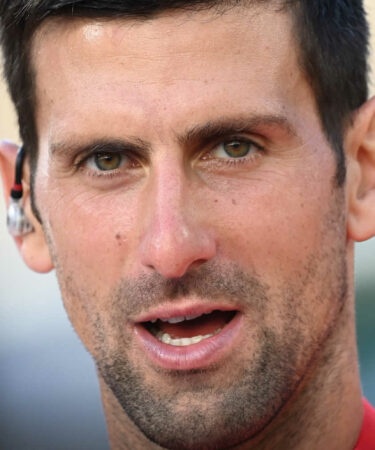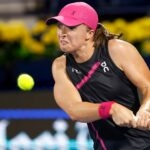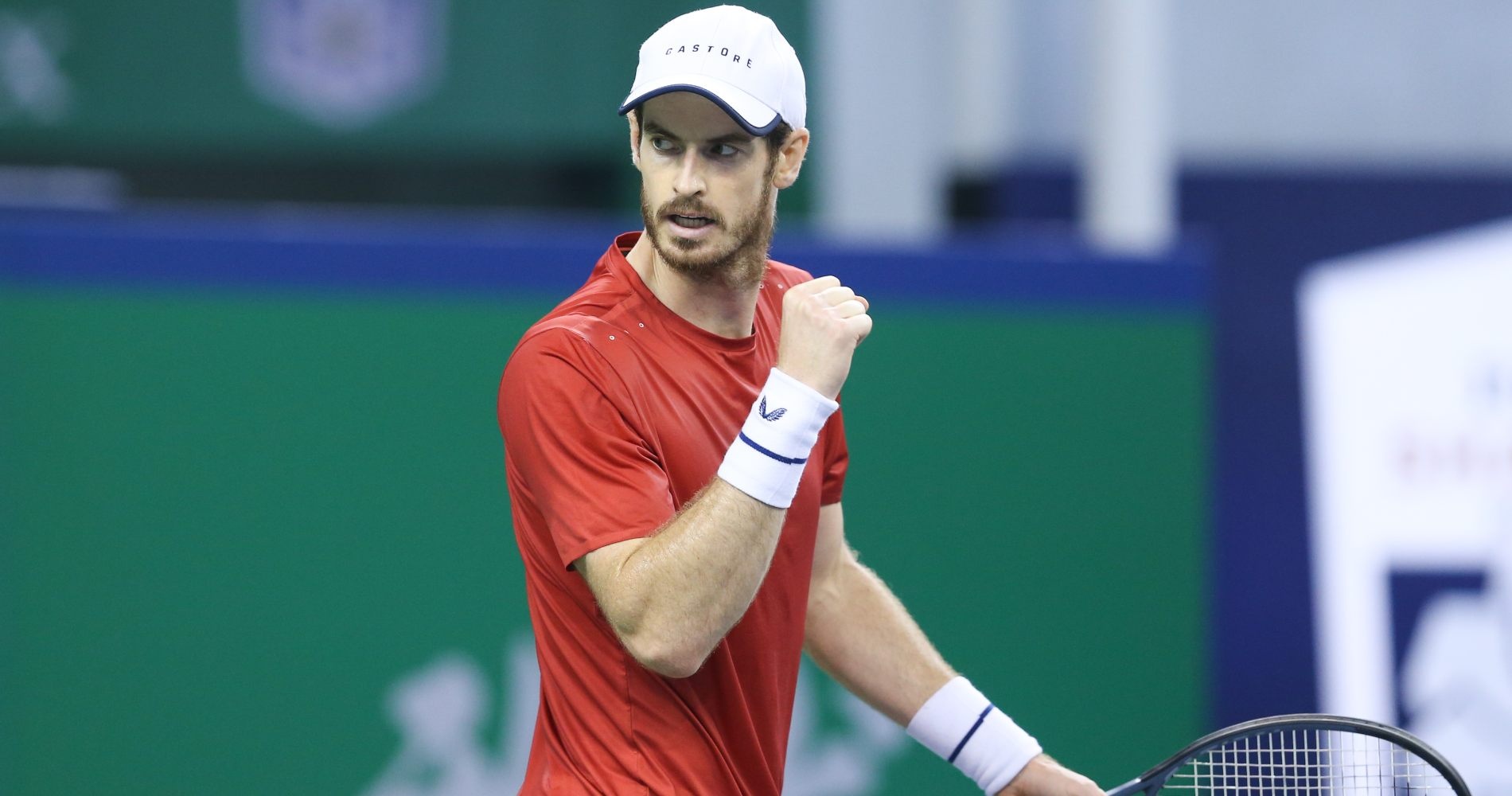Djokovic’s coach Marian Vajda exclusive: “I do not want to limit Novak”
Marian Vajda, the man that Novak Djokovic often refers to as “more than a coach,” reflects on Djokovic’s journey to 20 Grand Slam titles, talks pressure, US Open, Balkan pride and much more in this Tennis Majors exclusive with Sasa Ozmo.
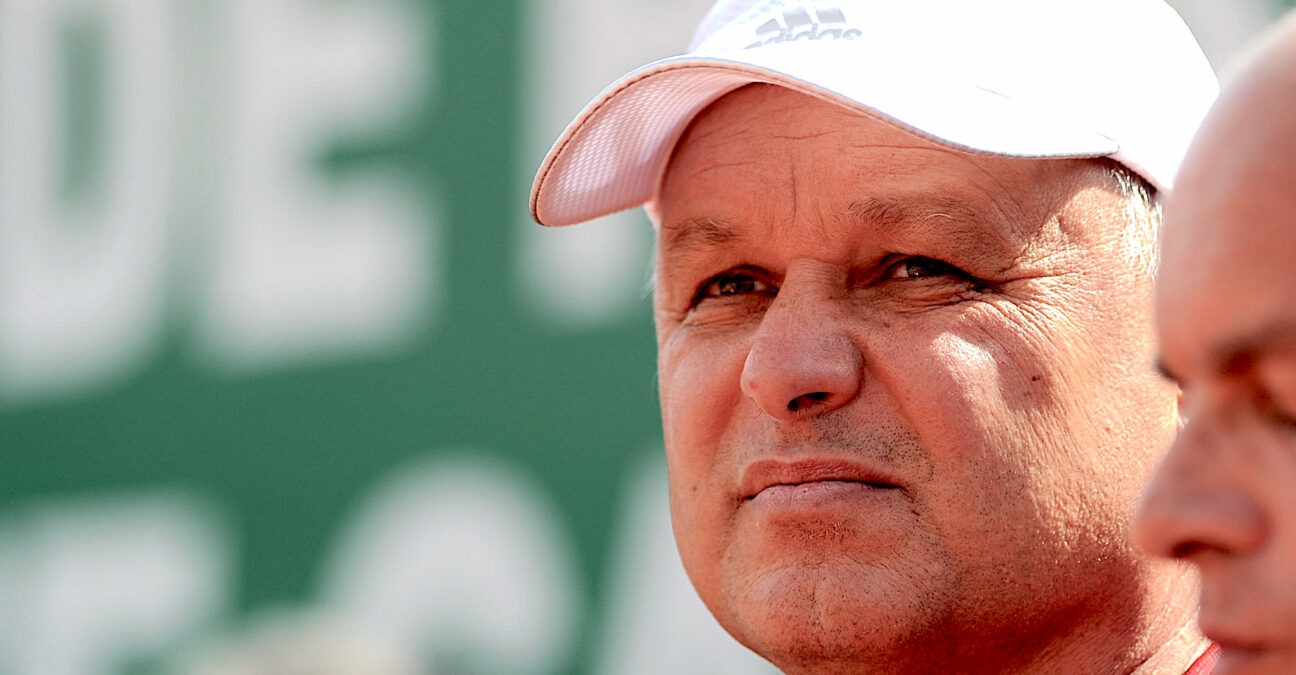 Marian Vajda, © Chryslene Caillaud / Panoramic
Marian Vajda, © Chryslene Caillaud / Panoramic
Marian Vajda has been an integral part of Novak Djokovic’s life for fifteen years. They started working together before Roland Garros 2006 and, except for one brief break, have remained together ever since.
Vajda has been a part of every single one of Djokovic’s record-equaling twenty Grand Slam titles. For this year’s Wimbledon, he was not on-site, co-coach Goran Ivanišević was, but Vajda’s celebration was just as ecstatic in his living room as it would have been on Centre Court at SW19.
Reaching such a significant milestone is more than a good enough reason to talk to one of the most decorated coaches in the history of tennis. From his home in Slovakia, the 56-year old spoke to Tennis Majors on Djokovic’s sixth Wimbledon title, his cooperation with Ivanišević, Djokovic’s improved serve and the media treatment Djokovic receives.
Also, Vajda looked back on some of the toughest moments of Djokovic’s career and then looked ahead to the pressure of the US Open and the Grand Slam chase…
Tennis Majors: Firstly, I would like to hear your impressions on Novak’s Wimbledon title. It seemed to a lot of people that he perhaps played at 80 percent of his capabilities, and still won. Would you agree?
Marian Vajda: I feel that nobody tested Novak to the highest point. For the finals, I told my family that there were going to be four sets and one tie break – my prediction was good. Novak plays intelligent grass court tennis and he has the most experience; he has been excelling on grass for years, which was a big advantage against Berrettini. For Matteo it was really difficult – in his first Slam final, the opponent was Novak at Wimbledon.
Tennis Majors: When I speak with Goran (Ivanisevic), he always says how much he enjoys working with you. How does your communication look during Slams?
Marian Vajda: First of all, as a team, we are sharing every moment: preparation for matches, analysis, but not only that, we share passion, private things with our families as well. Novak is an amazing guy because he always brings positive energy. It is a blessing really to be a part of this team.
As for the Slams, Goran and I communicate on a daily basis – voicemails, messages etc. Day before the match, on the day of the match, every day. The coach who is present at the time is the one giving the final information to Novak – Goran now at Wimbledon, me at the French Open. It is only logical, because when you are there, you know everything that is happening around the tournament and in the tournament.
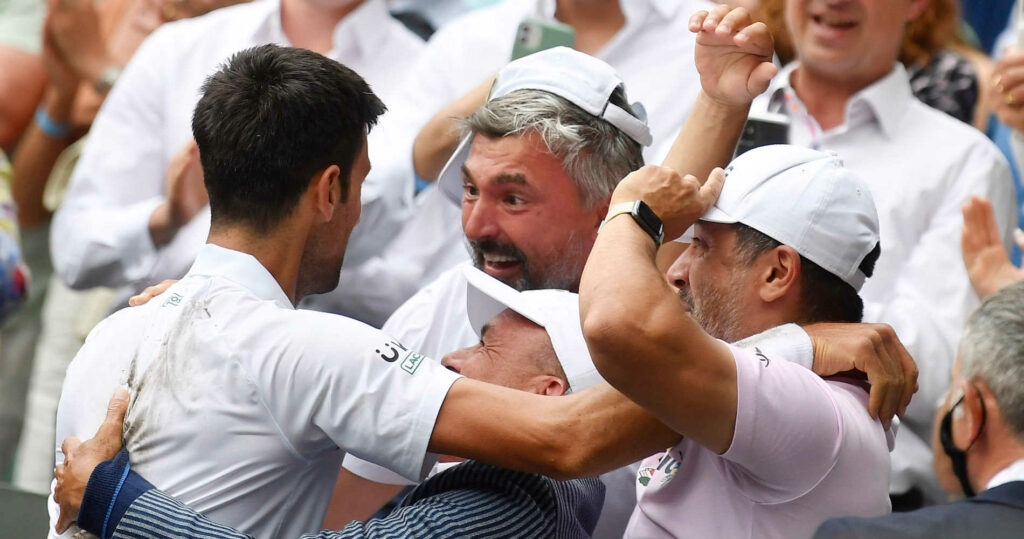
“Novak’s serve is more fluent; Sometimes, the media are one-sided when it comes to Novak”
Tennis Majors: There has been a lot of talk about Novak’s improved serve in the last couple of years. What has been the key for that, what did you change?
Marian Vajda: Goran’s inputs have been great, he is the master-chef in that part of the kitchen. The serve is not quite like Goran’s, ha-ha, but his instructions have been similar to what he himself used to do: the toss is lower and the biomechanics are different, Novak is now quicker to get up on the serve. He is not waiting for momentum, so his serve is much more fluent and energetic before hitting the ball.
It increases the speed of the ball as well as enabling him to hit it with enhanced precision. You can see that Novak is serving more aces and, overall, his serve is far more controlled. Also, the confidence is higher and with Novak, he is always so good at implementing things: what Goran is saying has been simple and very effective for Novak.
He has attained a level where fans think his game is a miracle, but it is not.
Marian Vajda
Tennis Majors: When we spoke three years ago in Paris, you told me your feeling was that some parts of the media were not treating Novak like the champion that he is. Do you feel that the media has now given him the recognition that he deserves?
Marian Vajda: It is very complicated. The media write what they want, perhaps to push an agenda or they want to influence something. Sometimes, they are one-sided and do not see the complexity of Novak’s personality. He is fantastic, a very nice and a positive person, which brings a lot of good energy to spectators.
Sometimes, people are in favor of the underdog, because Novak is so dominant and nobody wants to see him winning. His domination is so big that many people are jealous when seeing such perfection, so they ask: “How is this possible? How can he win so much?” They do not believe it.
I feel that Novak is an amazing example for the younger generation of athletes and people in general. He has attained a level where fans think his game is a miracle, but it is not – there is a lot of work and effort behind it.
In a way, it is normal in sports that people want to see somebody else at number one. My hope is that it has only to do with the sporting side, but I would like to see a more balanced (media) approach when it comes to Novak. Media promotes Nadal and Federer, the younger generation too – nice things are being written about Novak as well, but from my point of view, he deserves more positive coverage, he is a true champion.
“At the US Open, it is difficult to stay calm“
Tennis Majors: Looking ahead to New York. Novak has always played great there, but he has won the title “only” three times. Why?
Marian Vajda: There are many reasons. The results on average have been very good at the US Open, but yes, he “only” won it three times. It is very demanding to win in New York. On a few occasions his energy dropped in the finals; New York is a very vibrant and emotional city, it can take a lot out of you.
Novak loves to play in New York, but sometimes it is hard to stay calm and to keep your emotions in check all fourteen days. Night and day matches, humidity, the city… Also, it is the last Slam of the season, you have expended a lot of energy as a player by that point.
Tennis Majors: Novak has just reached 20 Grand Slams now, which is a huge milestone. Along that journey there have been many ups, but some downs as well. Following his breakout year in 2011, over the next few seasons Novak accrued a 6-7 record in Slam finals, before eventually turning the situation around at Wimbledon 2014 by beating Federer.
Marian Vajda: I had been with him for a long time already. I was tired and a bit burned out, so he was searching for an extra spark. Novak was looking for a coach with whom he could win more big titles, in coordination with me.
Boris (Becker) came along with his experience as a great champion, we worked together quite well and Boris brought fresh air to the team. That different energy lifted Novak, he won six more Slam titles and completed the Grand Slam in 2016. Winning Roland Garros in 2016 was an amazing experience.
Tennis Majors: After winning the title you just mentioned, new troubles began: injury, Novak changed the whole team, many people had completely written him off. Did you believe that he could come back?
Marian Vajda: It was a very tough period for Novak and for all of us – the injury was serious, the operation, he dropped out of top 20 etc. (Djokovic was No. 22 in June 2018) He was looking for new wind in his sails, he started working with Agassi and Stepanek. The chemistry was probably not that great, but the circumstances were tough also, because he was dealing with injury. It was the wrong time, unlucky for them.
He called me back, as well as Miljan (Amanović, physio) and Gebhard Gritsch (fitness coach). We started with fresh energy and we worked extremely hard – then the Wimbledon 2018 title came with that incredible semis against Rafa, followed by the US Open that same year.
From this perspective, that period was probably the best lesson of his life. He came back to the top from a very rough position, only great champions can do that.
After Novak won Wimbledon, Ivanišević said "we are from the Balkans, everything is possible“. How would you describe that mentality?
Marian Vajda: Firstly, I must say that Goran was an excellent choice (for a co-coach). Our mentality is similar, everything clicked from day one. Goran is very straightforward in communication, that is what I like the most about him – he always says it the way it is. Goran fit in very well, and Novak was pleased with the team.
As for the mentality, we never forget where we came from and we are always appreciative of every moment of our lives that led to this point. We are courageous people, and tennis is a big fight between two people. Also, Balkan people are very talented at sports and they play it with their heart, just look at basketball, volleyball, football. Simply put, they love to compete and have a big heart when it is clutch time.
Also, there is a specific pride when it comes to Balkan nations, you can see it in Goran’s sentence.
Sometimes Novak puts too much pressure on himself, but if he did not put not that pressure on himself, he would never be the champion that he is.
Marian Vajda
Tennis Majors: Ivanisevic has spoken about how working with Novak brings additional pressure. How would you describe life at a Slam for instance?
Marian Vajda: We adjust practices to the next opponent, but it is more about the mental aspect, to be ready. You do not want to lose, that is the pressure, but if anyone can handle it, it is Novak. It is funny, the relationship with pressure. Sometimes Novak puts too much pressure on himself, but if he did not put not that pressure on himself, he would never be the champion that he is.
When the situation is like that, you cannot tell him “be quiet” or “be nice” or “calm down,” because you know the energy is bursting inside of him, it is a positive thing. In a way, the pressure is good, because it gets the best out of you.
Tennis Majors: At this point in Novak’s career, when he has been through everything – mentally, physically and tennis-wise – what do you feel is your biggest task as a coach?
Marian Vajda: To keep him on track, to keep the same routine that we have. Also, to bring positive vibration and good energy. Preparation is very important, he needs to stay ready. Of course, putting up a good programme for practices, but to support him and give him confidence as well. As a team, we believe in what he is doing and what we are doing. Novak is in really good shape now, I feel like there is no limit for him.
Tennis Majors: We mentioned the word “pressure” quite a few times. In New York this year, the pressure is going to be through the roof for Novak. What does he need to do in order to deal with it?
Marian Vajda: He needs to avoid the media, because the media creates the pressure. Not to “avoid,” but to deal with it in the right way, and Novak knows how to do that. He won’t take some negative questions personally, for example. He has come a long way in handling that relationship. On the court, you just go out there and show your best. The court is Novak’s living room.
Tennis Majors: I know you get asked this a lot, but for how long do you foresee Novak maintaining this level?
Marian Vajda: We try to live in the present moment, because projecting too far can only be counterproductive. I could say two, three or four years, who knows, all I know is that he is not close to stopping. I do not want to limit him, let him play another year, then another, and then another.
